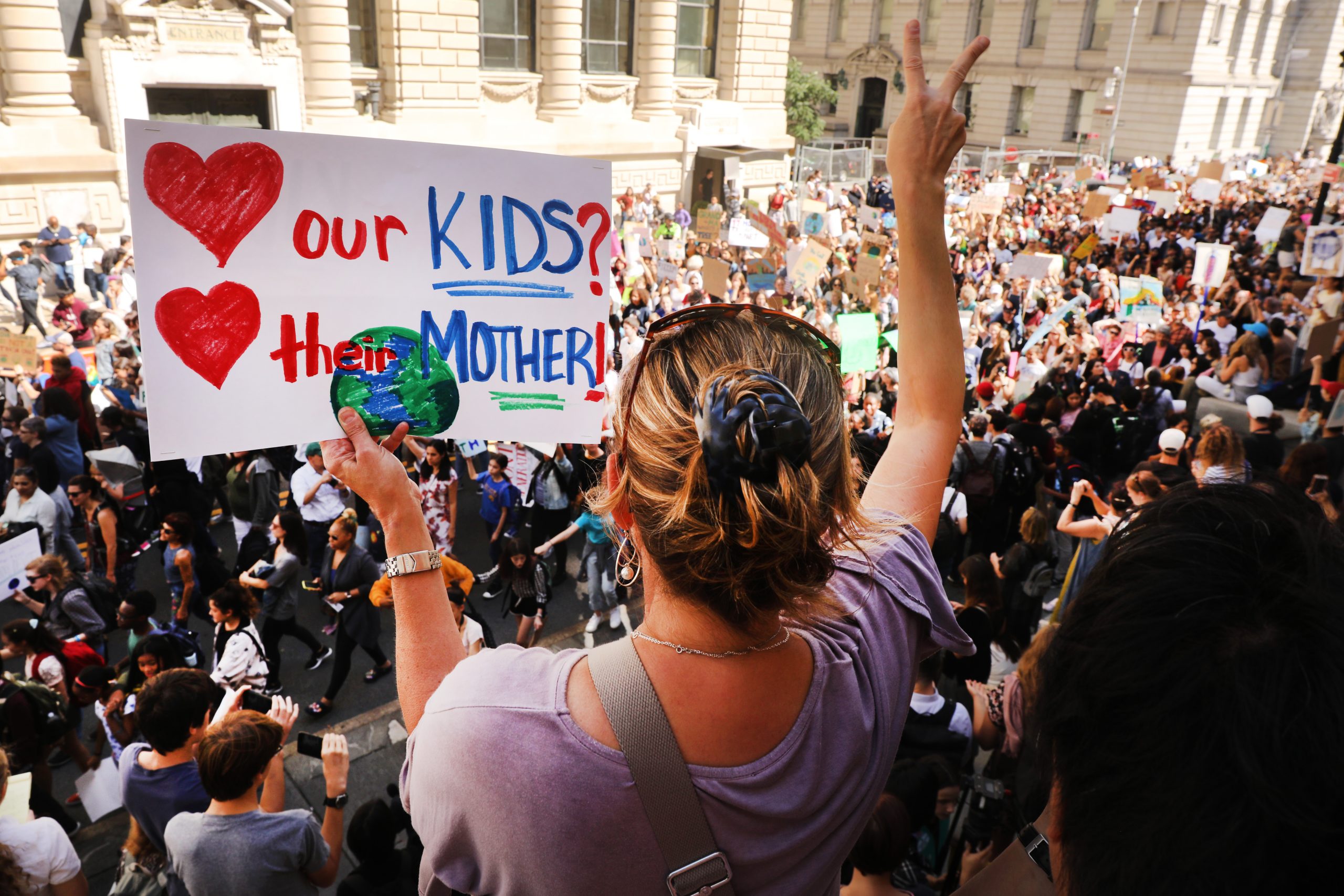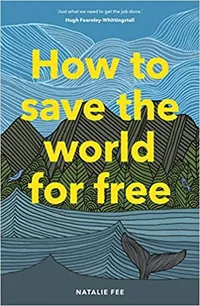
Learn how to deal effectively with your climate-change concerns without losing your impetus to act
What keeps you awake at 3am? Work deadlines? An argument before bed? Money worries? We all carry around daily worries, but some of us are sleepless over a much bigger concern – the state of planet Earth, otherwise known as eco-anxiety.
The latest UN IPCC climate change report is alarming, to say the least. After gathering evidence from over 14,000 research papers and 234 global scientists, UN officials called it a 'code red' warning. As Executive Director of the UN Environment Programme Inger Andersen says, 'Nobody is safe and [climate change] is getting worse—and fast.’
So no wonder research published in the Journal of Climate Change and Health has shared that, alongside feeling anxious and depressed about the current state of global warming, many are beginning to feel eco-anger, aka anger at the way climate change is being tackled. This is having a negative impact on people's general mental wellbeing.
Further, the American Psychiatric Association (APA) has said that climate change is 'a growing threat to mental health'.
Pair that with the fact many unprofessionals have spoken publicly about their lack of training on the eco-anxiety and anger - it's not something we've had to deal with before - and it's clear that professionals don't generally feel prepared to handle these issues, despite the fact that a growing number of people are feeling anxious, depressed and angry about the state of our planet.
So, what is eco-anxiety?
It's a condition that mental health practitioners report seeing a spike in over recent years, as we collectively wake up to the urgency of the climate crisis we find ourselves in. A survey from Tridos Bank of our top concerns showed the environment eclipsing issues such as housing and crime for the first time ever.
Olivia Howers, 27, who studied sustainability, science and policy at university, admits to living with such a sense of anxiety. "I had this constant nagging feeling at the back of my mind, a low level worry that I couldn’t get rid of. When you think about how much needs to change in such a short space of time, it’s completely overwhelming," she says. "Part of that anxiety comes from being with family and friends who don’t see that change is necessary."
Celebrity news, beauty, fashion advice, and fascinating features, delivered straight to your inbox!
How to Save the World For Free: (guide to Green Living, Sustainability Handbook), Amazon, £9.67
When did we start experiencing eco-anxiety?
"The rise in eco-anxiety," says Caroline Hickman, a psychotherapist at the University of Bath, ‘can be traced back to an unlikely source – Sir David Attenborough.’
His award-winning Blue Planet II series hit our screens in October 2017 and brought the extent of what had, until then, been an existential threat into sharp relief, as we watched the negative impact we are having on our oceans and marine life. You need only watch Seaspiracy to see as much.
"Blue Planet II was a shifting point," shares Hickman. "The impact of the climate crisis and specific sustainability buzzwords became truly became lodged in the public consciousness with this film."
The momentum was unstoppable, with other respected figures adding their voice to the cause, alongside news headlines about the crisis. "Then, 16-year-old Greta Thunberg started a global movement with the school strikes, while Extinction Rebellion launched its Act Now campaign. Even the BBC took the decision to stop giving airtime to climate-change deniers," adds Hickman.
Eco-anxiety treatment: how to tackle it, if you're suffering from it?
Today, we find ourselves being hit by a daily deluge of horror stories, so it’s no surprise that many people feel anxious. But how do we tackle our feelings of fear, anxiety and even despair?
‘I tell people it’s a healthy response to something that is huge and terrifying,’ says Hickman. ‘A specific anxiety such as a social phobia can be addressed at a personal level and be traced back, with the help of therapy, to find a route to deal with it. But eco-anxiety is different – it’s bigger than all of us.’
1. Address your own habits
For Howers, the best way to tackle her anxiety was changing her own consumer habits. "I’m happier now that I’ve stopped buying new clothes, I eat sustainably: that is, I only buy food I need for pre-planned meals and use food waste apps, and I avoid plastics and waste. If you're not sure how to go plastic free, try making small steps. I've switched to a sustainable bank called Triodos, which invests in projects that benefit the environment. I do wonder how my efforts can make a difference, but I’m trying to be optimistic."
Experts agree that it’s very common for ‘environmentally woke’ people to find themselves stuck between feeling like they must do more and worrying about what difference one person can actually make anyway. Bouncing between these two extremes can lead to a type of paralysis – where sufferers are unable to move forward with their lives.
2. Identify your symptoms
Seeing this paralysis as a form of grief can be helpful, says psychotherapist Judith Anderson, as the symptoms are similar: "The big things people come to me with are insomnia, lack of focus and feeling alienated from their families who may not share their views, the same symptoms we have with grief," says Anderson. "However, after bereavement we get on with our lives while still feeling sorrow. So it’s about living with what’s unfolding but not allowing sadness to take over."
3. Speak to others about the environment and what's going on
And in order to move on, talking is key. "Reaching out for help, or to others who feel the same, can stop people from collapsing into themselves," says Tree Staunton, director of BCPC, otherwise known as the Bath Centre for Psychotherapy and Counselling.
While it may be a news report or a film that triggers anxiety, often the onset occurs at a new life stage, such as in the case of Parisa Wright, 39, from London, who experienced deep anxiety about the planet after the birth of her second daughter. "I had a very tearful moment with my husband, where we both found ourselves thinking, 'What have we done bringing children into this world?' I started to feel anxious about what was going on with the planet and what my kids will inherit."
4. Find like minded people keen to stop climate change
She decided the only route out of her anxiety was to find like-minded people and act. Wright started by making changes at home – eating less meat, reusing and recycling more – and, this year, founded a Facebook group, Greener & Cleaner Bromley (& Beyond), for people in her area to swap ideas about how to be more sustainable. "At our first meeting, 25 people came," she says. "Now have more than 3,000 members. We hold events – clothes swaps and free talks by sustainability experts - and share recommendations of charity shops, rental services and ethical clothing brands."
Such a proactive approach is particularly effective for young people, who experts say are increasingly likely to suffer, too. In fact, researchers in Finland have found that children and adolescents experience a particularly acute eco-anxiety because they feel they have a limited ability to make an impact on this looming threat compared to adults.
5. Inspire the youth
One way round this, says clinical psychologist Dr Laura Kastner, ‘is to educate, motivate and inspire, rather than to create incapacitating fear’. Kastner suggests young people start small projects, such as a school recycling initiative, to give them a sense that they are doing something. "It’s a way to channel the feeling of hopelessness, and perhaps even shape future climate leaders." She says adults should accept a young person’s feelings, encourage healthy questions and reassure them they’ll be there, whatever happens.
But what if you’re feeling guilty for not ‘waking up’ sooner? ‘Don’t,’ says Hickman. "You’ve defended yourself from this for a very good reason – it’s terrifying." She suggests working through your feeling, then decide how you’re going to be part of the change. She says it’s important to form a relationship with our eco-anxiety. "Listen to it, validate it, and use your feelings to give passion and commitment to bringing about change in your life and inspiring others to do the same."
Five small steps you can make today to ease eco-anxiety
1. Hone in on the problems causing your eco-anxiety
If the issue feels too big to tackle, then hone in on one problem first, such as cutting down on single-use plastics. Taking small measures allows you to increase your impact gradually. Not sure how to go plastic free? Our guide could help.
2. Bank ethically
Banking ethically is a simple, yet effective way to vote against environmental destruction supported by big banks such as Barclays, HSBC and Santander.
3. Try alternative travel methods
Cars are bad news, given that the average motorist in the UK uses a vast amount of fossil fuel in their lifetime. Opt for a bike, and reap the benefits of fresh air and mood-lifting endorphin boosts.
4. Educate others on eco-anxiety and talk about the environment
Help your loved ones understand more about these issues by organising a movie night. Cosy up on the sofa with favourite cinema snacks and watch a good environmental documentary together. Discussing the current sustainability buzzwords won't harm, either.
5. Make sure your fashion is sustainable
Check the ethical fashion brands to invest in. Apps like the Good On You app are great. It collects info on over 2,000 international fashion labels and how environmentally sound they are.
Words by Fiona Cowood

Ally is Marie Claire UK's Senior Health and Sustainability Editor, a well-regarded wellness expert, ten-time marathoner, and Boston Qualifying runner.
Utilising her impressive skillset and exceptional quality of writing, she pens investigative, review and first-person pieces that consistently demonstrate flair and originality.
As well as writing, Ally manages a team of freelancers, oversees all commissioning and strategy for her pillars, and spearheads the brand's annual Women in Sport covers, interviewing and shooting the likes of Mary Earps, Millie Bright, and Ilona Maher. Shortlisted for three BSMEs and winning one in 2022, Ally lives and breathes her verticals: her eye for a story and connections within the wellness sphere are unrivalled. Follow Ally on Instagram for more.

